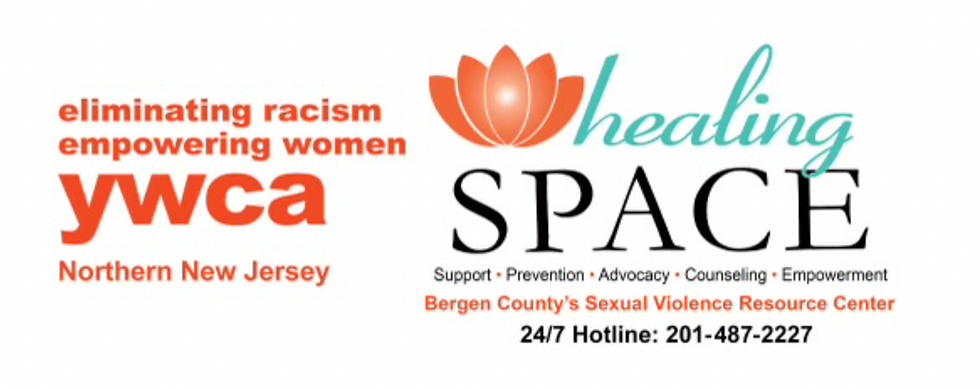The Importance of Addressing Sexual Violence
- Jan 13, 2024
- 4 min read
Updated: Feb 1, 2024
by Zoë Nomer
Zoë Nomer is an intern at Text Power Telling. She is a psychology major at Manor College and the founder and president of the Mental Health Club.
A Discussion with Simaza Sadek, Director of YWCA Northern New Jersey’s healingSPACE
In a recent conversation, Simaza Sadek, who is the Director of YWCA Northern New Jersey’s healingSPACE, discussed the critical work her organization is doing in addressing sexual violence in Bergen County, New Jersey. healingSPACE is the state-designated lead sexual violence agency for Bergen County, providing support and advocacy for survivors of sexual violence and their non-offending family members. Simaza shared insights into the challenges they face, the services they offer, and the importance of self-care. Simaza, who uses she/her pronouns, has a background in social work and a strong passion for anti-violence work. She started as a confidential sexual violence advocate (CSVA) during her undergraduate studies and went on to work in higher education, focusing on violence prevention at a community college. Her commitment to supporting survivors and her frustration with violence against women and girls led her to healingSPACE, where she has served as the Director since July 2020.
A Multi-Faceted Approach to Addressing Sexual Violence
healingSPACE uses a combination of approaches when it comes to addressing sexual violence, blending prevention, advocacy, and therapy. Simaza, speaking about this approach, said, “Our community outreach and education department conducts primary prevention work, visiting schools, colleges, universities, and organizations to raise awareness and challenge the myths surrounding sexual violence. We emphasize the importance of consent and healthy relationships.” healingSPACE also has a hotline department that operates 24/7, providing survivors access to trained CSVAs. A recent addition to their services includes a text function, recognizing many survivors may prefer to communicate via text. The counseling department at healingSPACE offers therapy with licensed mental health professionals who use trauma-informed therapies to support survivors throughout their healing journey. Importantly, their services are not limited to survivors but extend to their loved ones, recognizing that the impact of sexual violence extends to the survivor’s community.

Breaking the Silence and Ending Shame
Addressing the shame and stigma surrounding sexual violence is crucial. Simaza emphasized that survivors should not blame themselves and that society must shift away from victim-blaming. She acknowledged the difficulty of reaching out for help and stated, “When you’re ready, we’re here for you.” She also specified that sexual violence does not discriminate; it does not stop at women. She states, “It is a crime perpetrated against many people of all genders, sexualities, races, educational levels, and socioeconomic status. It’s not just women. This is a crime that largely affects women and other marginalized folks.”
Navigating Sensitive and Triggering Topics
Simaza highlighted that the trained staff at healingSPACE are well-versed in navigating sensitive and triggering topics with survivors. They do not push clients to discuss something they are not ready for and emphasize the importance of consent in therapy. She also made a point to specify that they provide trigger warnings before community presentations and offer access to confidential advocates during events. The clinicians at healingSPACE are also EMDR trained, which means Eye Movement Desensitization Reprocessing.
Self-Care is Self-Preservation
When discussing the importance of self-care, Simaza made it clear how important it is for one to take care of oneself. She quoted Audre Lorde, “Self-care is not selfish. It’s self-preservation and it’s an act of political warfare.” She emphasized the significance of recognizing that no one person can dismantle the systemic issues underlying sexual violence. Simaza encourages everyone to partake in small intentional actions daily to unwind and maintain their well-being, acknowledging the difficulties faced by those in the health profession: “You get tired, and knowing when to step aside and knowing that today I’m going to do something for me because it is restorative.”
Becoming a Licensed Social Worker
According to Simaza, it took blood, sweat, tears, and everything in between. Despite how much work it took her, she established, “I always knew very early on that this is what I wanted to do.” Her journey to becoming a licensed social worker involved four years of undergraduate study, followed by graduate school to earn a master’s in social work. This was followed by an exam for a license and an accumulation of clinical hours. Simaza is now a doctoral student in social work, furthering her knowledge and commitment to addressing sexual violence. In a time where doing so remains a critical social issue, Simaza and the healingSPACE team provide valuable support, education, and advocacy for survivors and their communities.
Simaza Sadek, MSW, LSW (she/her/hers) is a licensed social worker in New Jersey. She earned a Bachelor of Arts degree in Women’s & Gender Studies with a minor in Social Justice from William Paterson University and a Master of Social Work degree from Rutgers University. In her current role as Director of YWCA Northern New Jersey’s healingSPACE, the state designated lead anti-sexual violence program in Bergen County, Simaza oversees and manages all program and staff operations, with a focus on implementation of best practices to support survivors of sexual violence and their loved ones. Simaza also works in private practice, primarily with LGBTQIA+ people and their relational others. Simaza is a dedicated social justice advocate committed to gender and sexuality equity, diversity, racial justice, and violence prevention efforts. Her macro- and micro-level work has expanded her knowledge of the needs of marginalized communities, as well as the gaps faced by many people seeking services.
